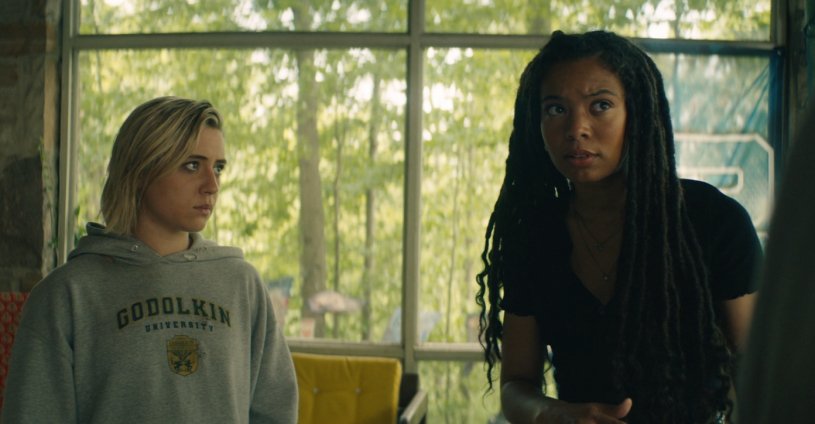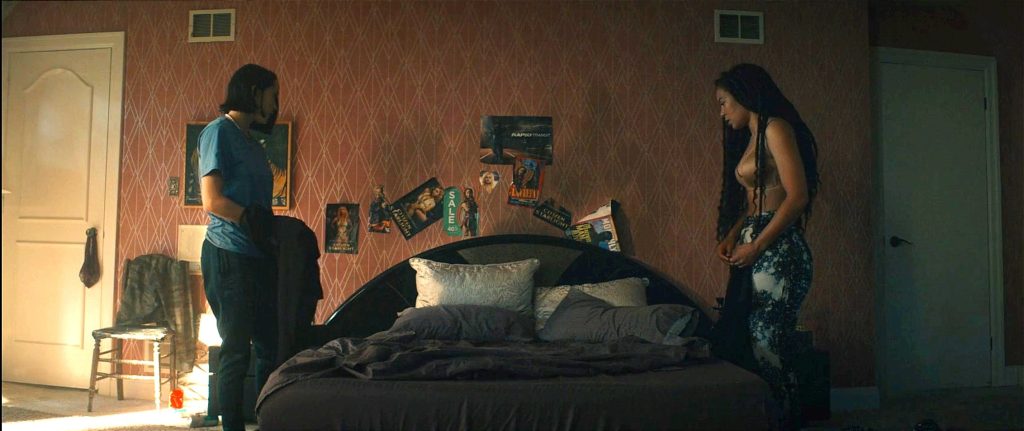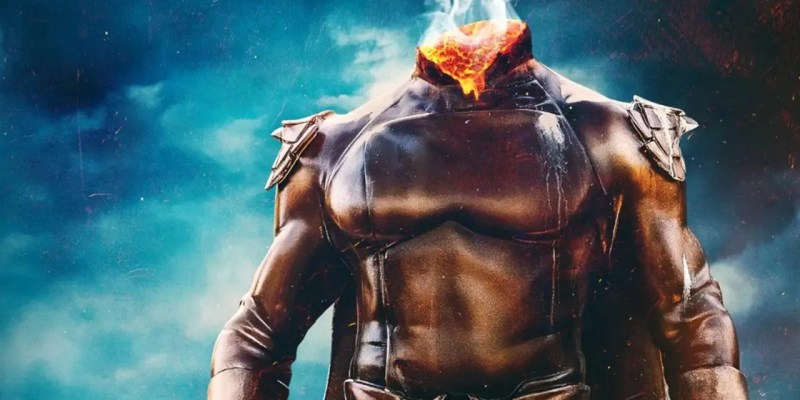This review of Gen V episode 5, “Welcome to the Monster Club,” contains spoilers. This article also contains discussions of sexual assault, as portrayed in the episode.
So far, Gen V has done a decent job in distinguishing itself from The Boys in terms of its outlook and influences. At its core, Gen V is a much more traditional superhero story than The Boys, and it draws more heavily from the X-Men franchise than from The Avengers. However, there is also a sense in which Gen V hasn’t done much to separate itself from The Boys in terms of plot or content. Much of the show could easily have been adapted into The Boys, with just a few details tweaked and changed.
The fifth episode, “Welcome to the Monster Club,” feels like an attempt to remedy that. “Welcome to the Monster Club” is an episode firmly anchored in campus culture, to the point that it is the first episode of the season that feels like it would be difficult to translate into an installment of The Boys. It is rooted in the idea of these characters as college students and the life experiences that come with that period of one’s life.
“Welcome to the Monster Club” is about date rape. After the interrupted climax of “The Whole Truth,” Marie (Jaz Sinclair), Jordan (Derek Luh and London Thor), Andre (Chance Perdomo) and Emma (Lizze Broadway) wake up in strange surroundings with no idea how they got there. They are missing time. “This is going to sound super fucked up and weird, but I don’t remember what happened last night,” Marie confesses to Jordan, after the pair wake up in bed together.
Obviously, date rape can happen anywhere and to anyone. It is not a crime unique to college campuses. However, it is a crime indelibly associated with college campuses. It has a long history, but it entered public consciousness during the 1980s. Debates about sexual assault on campus bubbled into the mainstream during the 2010s, with the Obama White House trying to combat it, the #MeToo movement raising awareness of it, and the Brett Kavanaugh hearings propelling it into the discourse.
There is a bluntness to “Welcome to the Monster Club,” to the point that the show’s college predator is literally named Rufus (Alexander Calvert), as if to suggest “roofies.” Indeed, the crime barely sits at the level of metaphor. In “The Whole Truth,” Marie had a brief encounter with Rufus that ended with her waking up as he stood naked before her. In “Welcome to the Monster Club,” Cate Dunlap (Maddie Phillips) recalls her own experience of sexual assault at Rufus’ hands.
“I met him in Intro Psych, Freshman Year,” she reveals to the group. “He said he liked my gloves, and then three days later I woke up in a random bed with a camera pointed at me.” Cate tries to downplay her trauma. “It doesn’t matter, I don’t even remember it.” Jordan counters, “Your body fucking remembers.” Cate tries to dismiss it by blaming herself, “I should have known better and now I do.” It’s an affecting sequence, emotionally honest and deeply sad.
“Welcome to the Monster Club” makes a clear connection between sexual assault and the experiences of the leading characters. At one point, Jordan talks to Marie about how “that scumbag mind-raped us.” It’s an effective use of superpowers as metaphor for social commentary — something very true to the origins of the X-Men. It also makes sense within the world of The Boys, which argues that superpowers – like any power – inevitably enable people to become their worst selves.
Unfortunately, while “Welcome to the Monster Club” grapples with big and weighty ideas, it somewhat fumbles the execution. It takes this weighty thematic and emotional beat, and reduces it to a simple plot point within the show’s larger conspiracy narrative. It’s ultimately revealed that Rufus didn’t wipe the memories of Marie, Jordan, Andre, and Emma. Gen V is a plot-driven show, largely propelled by mysteries and reveals, so the character work gets brushed aside.
The climax of “Welcome to the Monster Club” makes a big deal of the fact that Rufus didn’t wipe the characters’ memories. However, he did sexually assault Cate and attempted to sexually assault Marie. He is still a sexual predator. He has been castrated by Jordan and Marie’s “tag-team cocksplosion” in “The Whole Truth,” a suitably gnarly set piece, but castration isn’t always effective against sexual predators and overlooks the role of violence and power in the crime.
Rufus is still a threat, but “Welcome to the Monster Club” brushes him aside to focus on the revelation that it was actually Cate who wiped her friends’ memories. “I’ve only ever wanted to help and protect you,” Cate offers by way of explanation. “I just wanted to make things better.” This is a potentially interesting development, in that it finally suggests some meaningful conflict among the ensemble, but it also feels like it is just plot-driven melodrama.

It muddies the episode’s central metaphor, by taking a reality of campus life and tying it into a vast conspiracy that will inevitably be resolved by the end of the season. “They made you forget,” Sam (Asa Germann) warns Emma, the language of a conspiracy theorist. Once the characters start to realize what is happening, the episode’s themes begin to break down in the rush to the next game-changing twist. “It has to be more than Rufus, it has to be the school,” Emma states.
There could be an interesting thematic angle here tying into the show’s fascination with the internal dysfunction of Godolkin University. “Welcome to the Monster Club” could tell a story about how campus officials are often complicit in covering up or downplaying sexual assault, or the way that these communities often come together to protect their own “promising young men” instead of standing up for the victims.
After all, The Boys told its own story of sexual abuse in its first season, when Starlight (Erin Moriarty) was abused by The Deep (Chace Crawford). That assault was not part of some vast conspiracy enabled by sinister overlords, it was instead a predator taking advantage of institutional protections and power imbalances. It was a scene that was heavily reworked in the context of #MeToo, and the plot was widely praised as “cynical, funny, and horrible” in a way that was “to the show’s credit.”
In contrast, the emphasis on plotting in “Welcome to the Monster Club” means that the episode largely feels like a diversion. It plays as a speedbump, a delaying tactic to prevent the characters from reaching the climax of the season too early. The term “filler” is thrown around too readily by fans, and there is some very good stuff in “Welcome to the Monster Club,” but the show’s foregrounding of its serialized narrative ultimately does the episode a disservice.
It also raises some internal contradictions. Cate’s account of her sexual assault by Rufus — and his threat about what he would do if she decided to “make it weird” — is hard to reconcile with the first interaction between the pair in “First Day.” Surely instructing Rufus to hit himself in the balls with a baseball bat while shouting “Jumanji” counts as “making it weird,” and there was no sense that Cate felt any anxiety over it or that Rufus felt he held any power in the interaction. It muddies that subsequent revelation.

It’s a shame, because there is some good stuff in “Welcome to the Monster Club.” Indeed, the episode has a great deal of fun with being an episode of superhero television. “Welcome to the Monster Club” showcases some delightful new applications of Marie’s “blood powers.” She can tell that the blood under Sam’s nails is not his own, when Emma will have her next period, and identify the clotting around the tracking implant that was placed in her. It’s good fun superhero stuff.
The same is true of the episode’s big set piece, in which Sam has a complete break from reality while tearing through a team of operatives sent to apprehend him. He imagines his opponents as muppets, and then brutalizes them. Limbs are torn off, heads are ripped off, brains are pulled out. However, because this violence is inflicted on puppets, it becomes endearingly absurd. In Sam’s head, these soldiers don’t bleed — they explode in clouds of red glitter.
Of course, it’s fair to wonder whether the sequence is really necessary or whether it is simply some nice social-media-friendly spectacle. After all, it is the most-played section of the season’s first trailer and featured more prominently in the season’s final trailer. As a rule, these broadcast blocks tend to have one meme-able moment apiece, like Emma going through Greg’s brain in “#ThinkBrink” or the aforementioned “cocksplosion” or the hole compilation in “The Whole Truth.”
The muppet fight sequence feels like an attempt to break up an episode that might otherwise seem too heavy or too earnest. In some ways, it’s like the big plot reveals at the end of the episode; an attempt to hold the attention of an audience that might not be engaged with the hefty subject matter. It’s a sequence that could easily be taken out of the episode entirely, without missing a beat. Still, it’s undeniably playful and inventive, and speaks to the show’s inherent charm and energy.
“Welcome to the Monster Club” feels like Gen V trying to stake out some narrative and thematic real estate quite separate from The Boys. It’s a shame that it seems to get lost in the effort.
